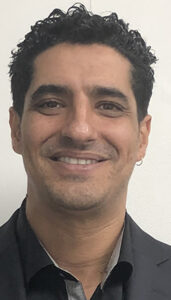By Shahar Masori

SAN DIEGO — These past weeks, two men with an insatiable hunger for power once again reminded us how fragile democracy truly is.
In Israel, Prime Minister Netanyahu launched yet another wave of military action—this time timed to the very hour he was due to testify in court regarding corruption charges. I’m not trying to peddle conspiracy theories—just pointing out a coincidence too obvious to ignore. And in the U.S., Donald Trump floated the idea of a full-blown military-style parade to mark his birthday. The image he paints is not one of civic pride but of authoritarian theater—red hats in place of red banners, loyalty over liberty. It’s more North Korea than New York, more Putin than patriotism.
Both men are masters of distraction, dominance, and deflection. And both understand the power of spectacle. These tactics—distraction, dominance, and deflection—are not isolated incidents but part of a broader pattern: one where power is maintained not through trust or truth, but through fear, manipulation, and sheer volume.
But beyond the headlines—beyond the strikes and parades and tariffs—the real danger is what happens when democracy loses its footing entirely. The U.S. and Israel, each in their own way, are modern superpowers. Not just because of their military or economic strength, but because of their capacity to foster innovation, culture, and free thought. The beast of progress—messy, creative, and relentless—has always been fed by liberty.
What happens when that liberty erodes?
What happens when artists self-censor, when scientists hesitate, when educators are silenced—not because they lack ideas, but because they fear the consequences of sharing them? What happens when governments decide which histories are acceptable to teach, which identities are valid to express, which questions are safe to ask?
We are already seeing the shadows creeping in. The recent decision by the current U.S. administration to pressure the Smithsonian to cancel or alter exhibitions dealing with race, gender, and America’s legacy of injustice isn’t just about museum policy. It’s about rewriting memory—and once you control the memory, you control the narrative.
In the U.S., books are being banned, universities are being threatened, and public discourse is increasingly policed by political agenda rather than intellectual curiosity. But Israel, too, is grappling with its own democratic erosion. The push to limit judicial independence last year—an effort to give the government unchecked power over the Supreme Court—sparked the largest protests in the nation’s history. This wasn’t about political affiliation; it was about defending the rule of law. When the judiciary becomes a tool of the ruling party rather than a check on its power, democracy becomes performance, not principle.
Press freedom has also taken a hit. Investigative journalists have faced escalating pressure, with some being dismissed or sidelined under political scrutiny. Meanwhile, state institutions—once built to serve the public—are slowly being filled with political appointees, eroding their objectivity and undermining public trust. A recent example: attempts to insert ideological loyalty tests into cultural and educational funding decisions.
These changes may feel incremental, but they are foundational. A democracy doesn’t collapse in a day—it withers under the weight of a thousand rationalizations.
And yet, the very things that make Israel and America exceptional—the Nobel prizes, the scientific breakthroughs, the groundbreaking tech, the culture exported around the globe—have always sprung from that freedom to explore, to challenge, to imagine without fear.
Take Israel’s Iron Dome or advances in water desalination—both born of necessity, yes, but also of a national spirit that values innovation over conformity. Take the U.S. breakthroughs in medicine, in music, in literature—all made possible by minds that were free to question and disrupt.
As Benjamin Franklin warned, “Whoever would overthrow the liberty of a nation must begin by subduing the freeness of speech.”
And as Israeli writer Amos Oz once said, “Even a necessary war is a terrible war. And even a just cause can be corrupted by blind hatred.” Replace “war” with “power,” and the truth remains.
A truly authoritarian America wouldn’t just be a crisis for Americans. It would be a global earthquake. The world’s institutions—economic, diplomatic, and security-based—are built on the assumption of U.S. democratic stability. If that foundation cracks, everything built atop it could fall. And for Israel, whose safety and prosperity are deeply tied to its alliance with the U.S., that would mean a destabilizing shift at the very core of its strategic future.
Living between two countries, I’ve learned to recognize the signals before the sirens. It’s never just one parade, one airstrike, or one policy change. It’s the accumulation—step by step, show by show, speech by speech—until democracy is so eroded it can no longer stand.
It is not illegal to be a narcissist in public office. But it becomes dangerous when narcissism writes the national script. When myth replaces mandate, and spectacle replaces substance, the warning lights are no longer hypothetical. They are flashing.
I sometimes worry we’ve become numb. That we’ve accepted dysfunction as normal and propaganda as politics. But democracy doesn’t run on autopilot. It needs us. It needs outrage. It needs clarity. It needs courage.
So yes, pray—if that’s your way. But also question. Question the motives behind every parade. Question the timing of every airstrike. Question every policy wrapped in a flag and sold as salvation.
Because the true strength of a nation lies not in tanks or tariffs, but in its people’s willingness to hold power accountable—and in their fierce defense of the freedom to think, speak, create, and challenge. Without that, we lose not just democracy—we lose the future.
*
Shahar Masori is an Israeli American freelance columnist based in San Diego.
Believe me he does!
The author does not seem to understand that elections have consequences.